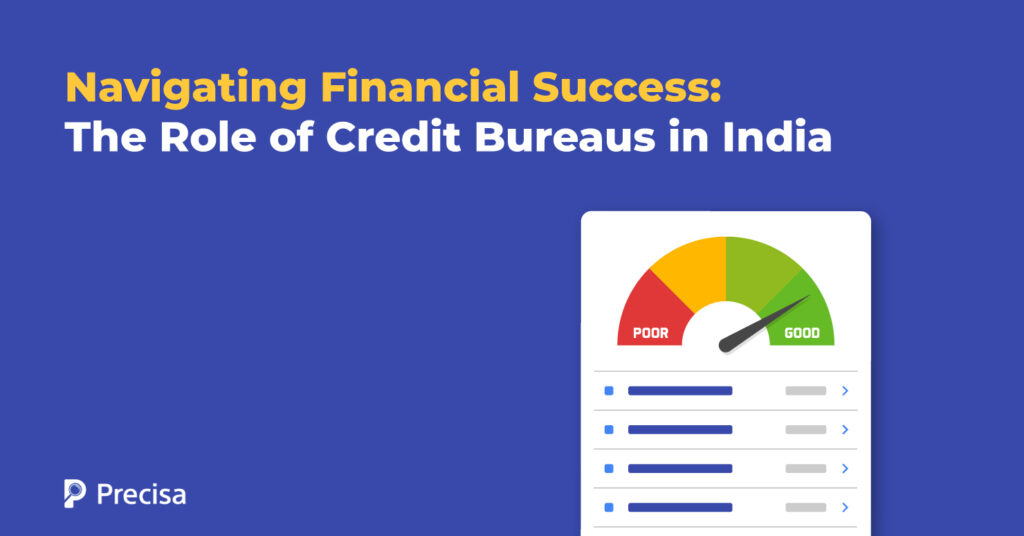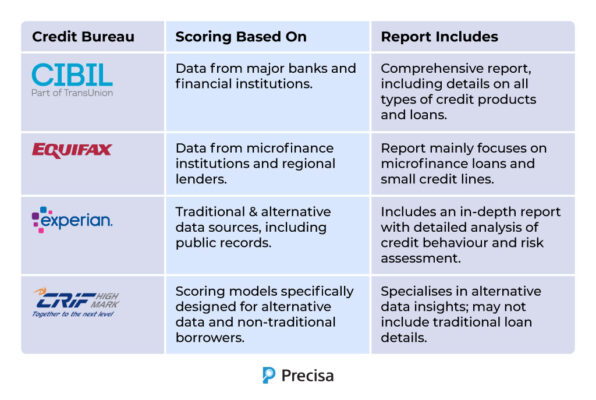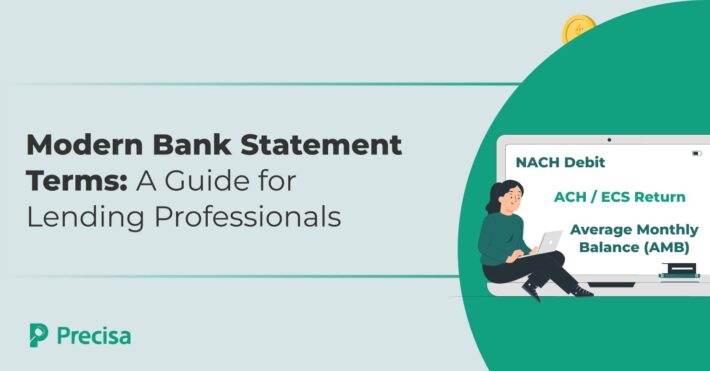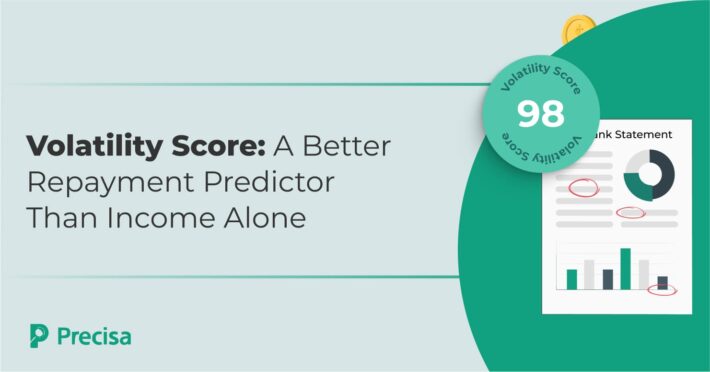Navigating Financial Success: The Role of Credit Bureaus in India

The financial sustainability and growth of an individual or a business are often intricately linked to their access to credit. Whether it is an education loan for an individual or a working capital loan for a company, all play a vital part in promoting the growth and well-being of the borrower.
The importance of a good credit score can be judged by the fact that lenders want to approve loans only to creditworthy applicants. Lenders carry out a credit appraisal at the initial stage of loan application to lower their risk of default by sanctioning loans to applicants with a good credit score.
But how do lenders ascertain the applicant’s creditworthiness, or how do they access an individual’s credit score?
This is where credit bureaus come in. In today’s blog post, we focus on the role of credit bureaus in India in the financial success of a business or an individual.
What is a Credit Bureau?
Credit bureaus, also known as credit reporting agencies, are financial organisations that collect data related to the credit histories of individuals and business houses.
They collect information on loans from banks, financial companies and other institutions. Lenders (member institutions) provide all relevant information on existing loans, repayment history, applications for fresh credit, credit card bill payments, and more.
The credit bureaus in India compute a credit score for each individual and business based on the information collected from various lending agencies.
Functions of Credit Bureaus in India
Credit bureaus in India carry out the following functions:
1. Credit Reporting
Credit reporting is one of the primary functions of credit bureaus. They collect data from various lending institutions and use the collected information to create comprehensive credit reports.
These credit reports contain details about all running and closed loans and credit cards of an individual, outstanding amount, repayment history, details on credit enquiries and credit utilisation and personal information of the account holder.
2. Credit Scoring
The bureaus use the collected information to calculate and assign credit scores, a numerical representation of the individual’s creditworthiness. A higher score indicates a lower risk of default; lenders use credit scores extensively for their lending decisions.
3. Credit Monitoring
Credit bureaus also monitor the credit behaviour and activities of creditors regularly and update the reports accordingly. This ensures financial institutions have updated information to help them make informed decisions.
4. Fraud Prevention
The credit bureaus in India help lenders in fraud prevention by identifying and flagging dubious accounts and activities and also flagging identity thefts. To optimise the process further, Lenders are employing fintech tools to minimise frauds and defaults pre-emptively.
The Four Credit Bureaus in India
There are four principal credit bureaus in India; though the primary goal for all of them is the same, each adopts a unique approach to collecting and reporting credit data.
Credit bureaus are also known as credit reporting agencies and hence easily confused with credit rating agencies; know the difference between credit bureaus and credit rating agencies.
1. Equifax
Equifax has credit bureaus in India and all over the world. Equifax assigns credit scores to individuals ranging from 300 to 900 and offers a range of credit information and analytics services.
They are known for advanced analytics, industry expertise and trusted data. Lenders use Equifax credit reports and scores extensively for their credit risk assessment and decision-making.
2. TransUnion CIBIL
TransUnion CIBIL, previously known as Credit Information Bureau (India) Limited, is among the oldest credit bureaus in India.
They maintain a comprehensive credit database and provide scores ranging from 300 to 900. A high CIBIL score represents good credit health and increases the chances of getting loan approval. Lenders widely use CIBIL scores for screening loan applicants.
The bureau has over 5,000 members, which includes leading financial institutions, banks, housing finance companies and NBFCs.
3. Experian
Experian has a presence in India and other countries. Their credit scores range from 300 to 900; the closer the score is to 900, the better the credit health of the individual or the business.
The bureau works with over 5,000 members and has a database of more than 430 million records. They provide information to help individuals boost their credit scores, help businesses grow, and prevent fraud and identity theft.
4. CRIF Highmark
CRIF Highmark provides credit scores ranging between 300 and 850. It is the first credit bureau in India to offer full-service information for diverse groups of borrowers. CRIF Highmark collects information from over 4,000 financial institutions and has one of the largest databases in the country.
A Snapshot of Credit Bureaus In India
Role of Credit Beauras in India in Navigating Financial Success
Credit bureaus help various stakeholders navigate financial success in the following ways:
-
Provide Access To Credit
Lenders review the applicant’s credit score to verify their creditworthiness, an objective way of decision-making. This removes any dependence on external factors like a guarantor or references to access credit or the discretion of the sanctioning authority.
-
Help Risk Management And Fraud Prevention
Lenders can identify fraudulent applications by examining credit reports when screening loan applications. Credit bureaus in India help lenders manage their risk better through comprehensive credit reports and monitor the borrowers’ behaviour after loan disbursement to ensure better loan management.
Finezza’s industry-leading Credit Bureau Data Analytics platform offers a simplified view of the borrower’s credit scores and custom data analytics to help lenders manage their risks.
-
Aid Financial Planning
Credit bureaus in India help individuals and businesses plan their finances better. Credit reports provide comprehensive information about credit history, debt levels, payment patterns, and credit mix, facilitating better financial planning. Users can track their financial health and make informed decisions for managing debt.
Key Takeaways
Credit bureaus in India help individuals, businesses, and lenders fulfil their financial goals and manage risks better. They help in fraud prevention, access to credit more efficiently, and aid in financial planning by providing valuable inputs on credit health on the history of individuals.
Web-based tools like Precisa’s Account Aggregator assist lenders in connecting to Account Aggregators (AAs) and fetching financial data in real time.
To learn more, request a demo today!




